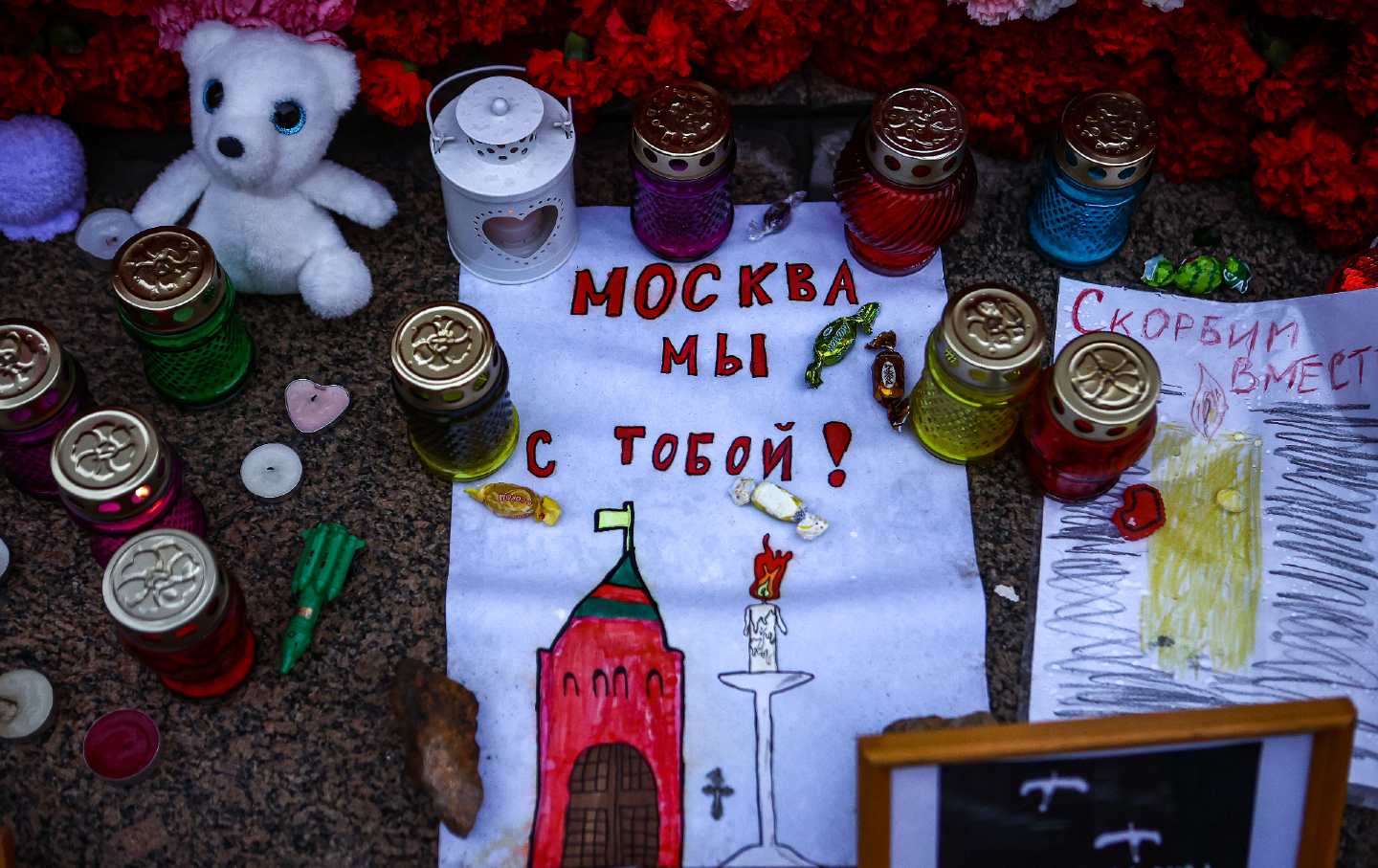
Makeshift memorials and billboards with a single candle and the words “We Mourn” are everywhere after the heinous March 22 attack in Moscow, in which at least 137 people were killed.
People stood in long lines throughout the capital to donate blood. The Russian Foreign Ministry ordered the lowering of flags on Russian embassies abroad. President Vladimir Putin declared that Sunday would be a national day of mourning.
Yet the glaring failure of Putin’s security state to prevent the gruesome assault—despite the US warning of March 7 that a strike on a concert hall could be imminent—may endanger the Russian government’s social contract with its people.
The attack, which underscored the country’s continuing vulnerability to terrorist acts, came just days after Putin’s victory in an orchestrated election—solidifying his power as the war in Ukraine drags into its third year.
Responsibility for the assault was quickly claimed by an Afghan-based affiliate called ISIS-Khorasan, or ISIS-K—a claim swiftly backed up by US and other Western intelligence agencies. ISIS itself claimed responsibility. Yet Russian officials and state media have made little reference to ISIS’s claim. Instead, both Russian government officials and the FSB security service have repeatedly claimed that the assailants were intercepted while traveling to Ukraine.
The investigation into who committed the gruesome killings is in its early hours. Yet it is worth noting that, previously, the FSB was focused almost entirely on the Islamist terror networks. But since 2002, most of its statements and work have related to Ukraine. And too often those accused of “terrorism” and intercepted by the FSB were Russians protesting against the war or the government—such as Yuri Orlov and Boris Kagarlitsky. From the beginning of his reign, Putin built his career and image on the fight against Islamic militancy. His hard line was designed largely to pacify Chechnya, the Muslim majority republic that fought and lost two wars for independence in the 1990s and 2002. Putin promised to bring stability, order, and security to the Russian people. Instead, his brutal military policies and unyielding refusal to negotiate a political resolution with the Chechen government-in-exile spurred a wave of terrorism that apparently, decades later, still afflicts Russia.
As conspiracy theories in Moscow, Kiev, and elsewhere swirl about—the attack was a false flag, a signal to Trump, the work of the Russian special forces, or connected to Yemen—the war in Ukraine continues to metastasize. Ukraine’s air force—just the other day—proclaimed that it had shot down 43 of 57 Russian missiles and drones launched overnight against different parts of the country. Yet Ukraine’s battered army grapples with growing troop shortages. And efforts to draft young men are hampered by politics, demographics, and Ukrainians’ increasing reluctance to join the military. For the first time, a few days before the attacks, Russian Press Secretary Peskov called the Ukraine war a war, citing the West’s involvement in the conflict—and jettisoning the official construct, “special military operation.”
Will Putin seize advantage of this latest attack to strengthen his grip on absolute power? For example, will he insist that the terrorist threat demands even more resources for the security services? Will he use the assault to mobilize another wave of conscripts—ahead of an anticipated spring offensive in Ukraine?
Another round of mobilization would have a particularly noxious impact on women and rural Russian men, who are more likely to be conscripted. In fact, a new wave of mobilization is broadly unpopular. And for Putin, while he has often deferred unpopular steps until after elections, the Crocus attack may mean more focus on retaining his base and less on new mobilization. For now, the official position is that no new mobilization is needed. (It is likely that any new mobilization—this is largely the case for Ukraine as well—will place the principal combat burden on politically marginalized groups, such as the rural poor, convicts, and ethnic minorities, and, in Russia, will pay big salaries and bonuses to those who volunteer to fight.)
Yet another question looms: Could this tragic attack also offer an opportunity for those advocating a negotiated settlement to war? Or will the Kremlin use the Moscow attack as a pretext to tighten domestic repression? (Calls by officials for canceling Russia’s moratorium on the death penalty for terrorism were quickly raised.) At this point, nothing is firmly established or clear. The horror is also a reminder of the fatal results of mutual distrust. But those who suggest that Putin arrogantly dismissed US intelligence warnings, issued March 7, of an impending attack failed to read or cite his full statement:
I am asking the Federal Security Service, together with other special services and law enforcement agencies, to step up their counter-terrorist efforts in all areas in a meaningful way with the National Anti-Terrorism Committee playing its coordinating role…. We must understand we are dealing with a formidable and dangerous adversary who has a wide range of informational, technical and financial tools up its sleeve.
What is intriguing is new evidence showing that many Russians support Putin—but not the war. Indeed, even Putin voters are skeptical of the Kremlin’s determination to continue the bloody conflict. Despite the Kremlin’s massive effort to drum up support, nearly one in four Putin backers opposes continuing the war, and roughly the same number say they’re unsure whether they support war (19 percent) or decline to answer the question (4 percent). This means only slightly more than half of Putin supporters—54 percent—think Russia should continue the war that Putin has championed since the Russian invasion in February 2022.
While it is important that the US embassy warned the Russian government of possible terrorist attacks, might President Biden make time to contact with Putin to express this country’s sorrow and empathy?
More from The Nation
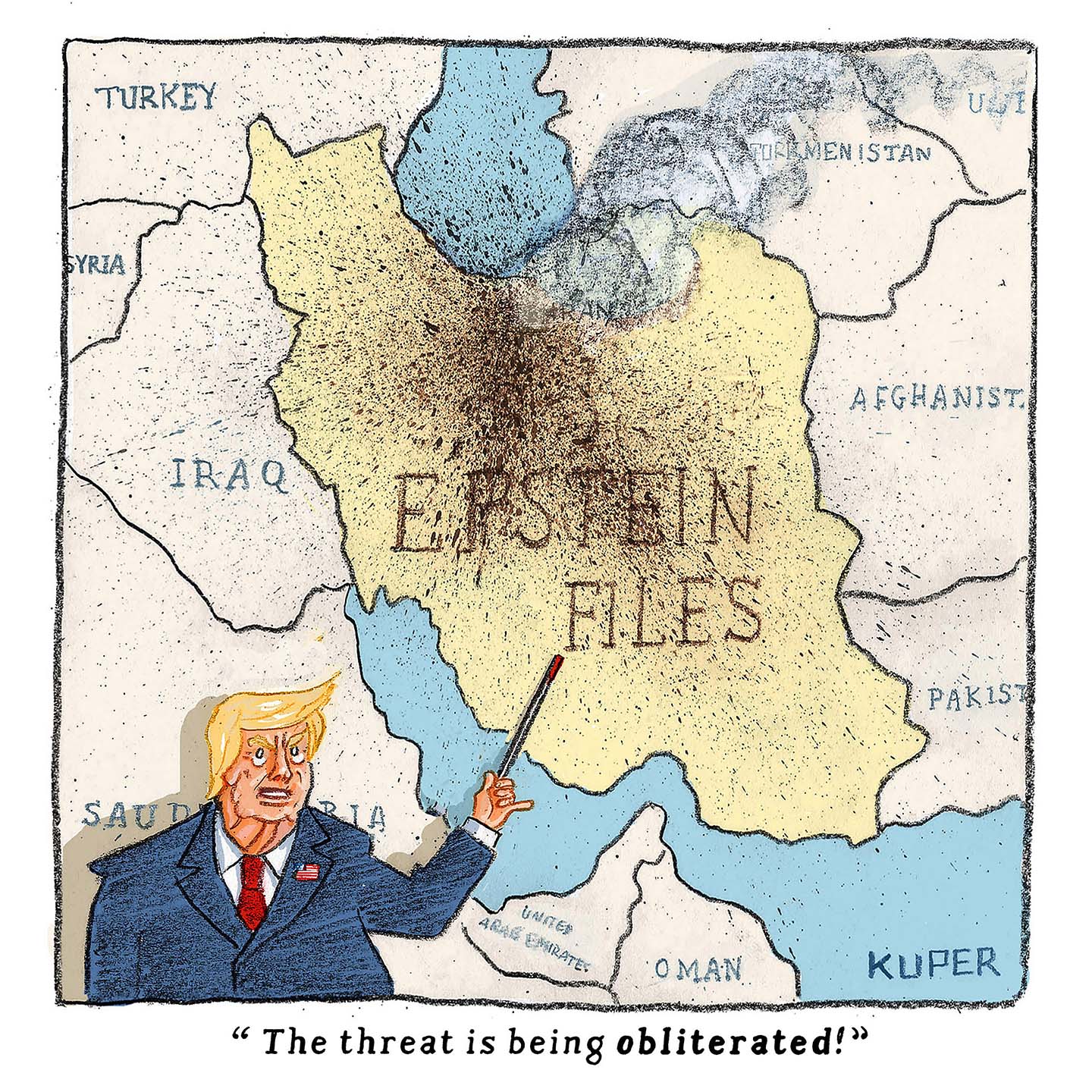
Trump’s Reason for War in Iran? Trump’s Reason for War in Iran?
Obliterating the Epstein files at any cost.
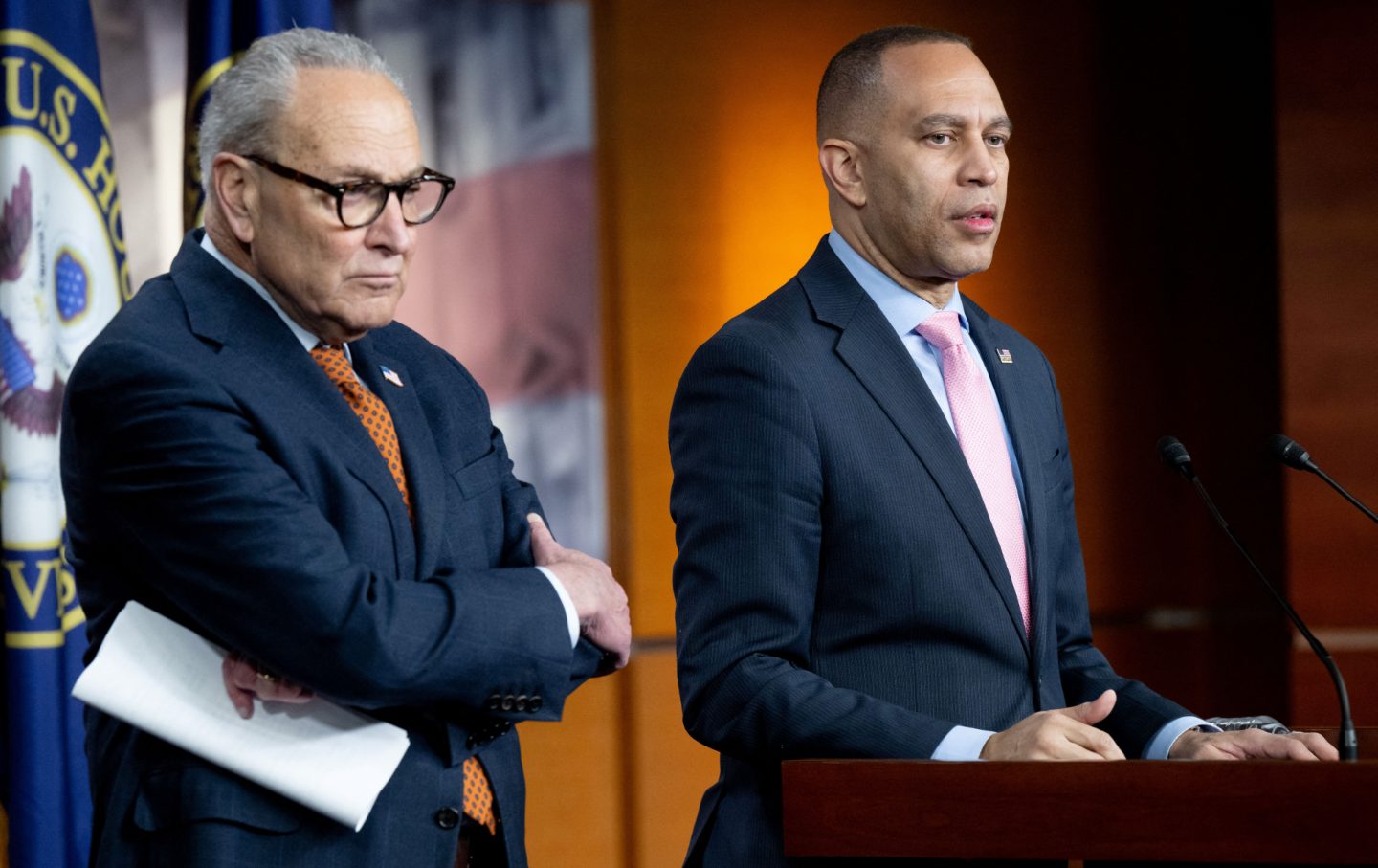
Why Can’t Top Democrats Just Say “No War With Iran”? Why Can’t Top Democrats Just Say “No War With Iran”?
The response to what could be the biggest geopolitical disaster of the 21st century is foot-dragging, silence, and sleepy, feigned opposition long after the deed is done.
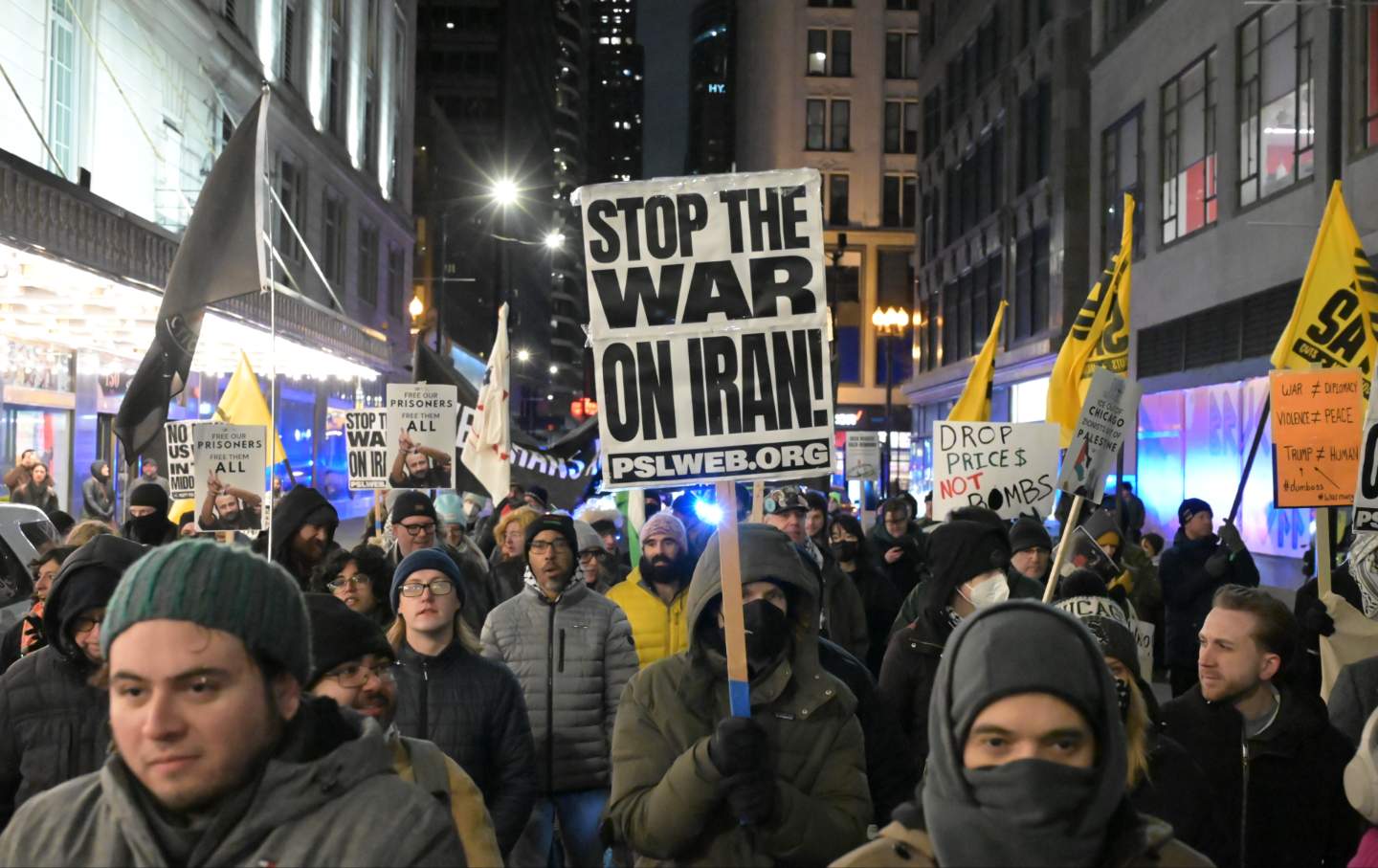
This Is an Unnecessary, Unauthorized, and Unconstitutional War This Is an Unnecessary, Unauthorized, and Unconstitutional War
Congress has a duty to take up War Powers resolutions and assert its primacy over matters of war and peace.
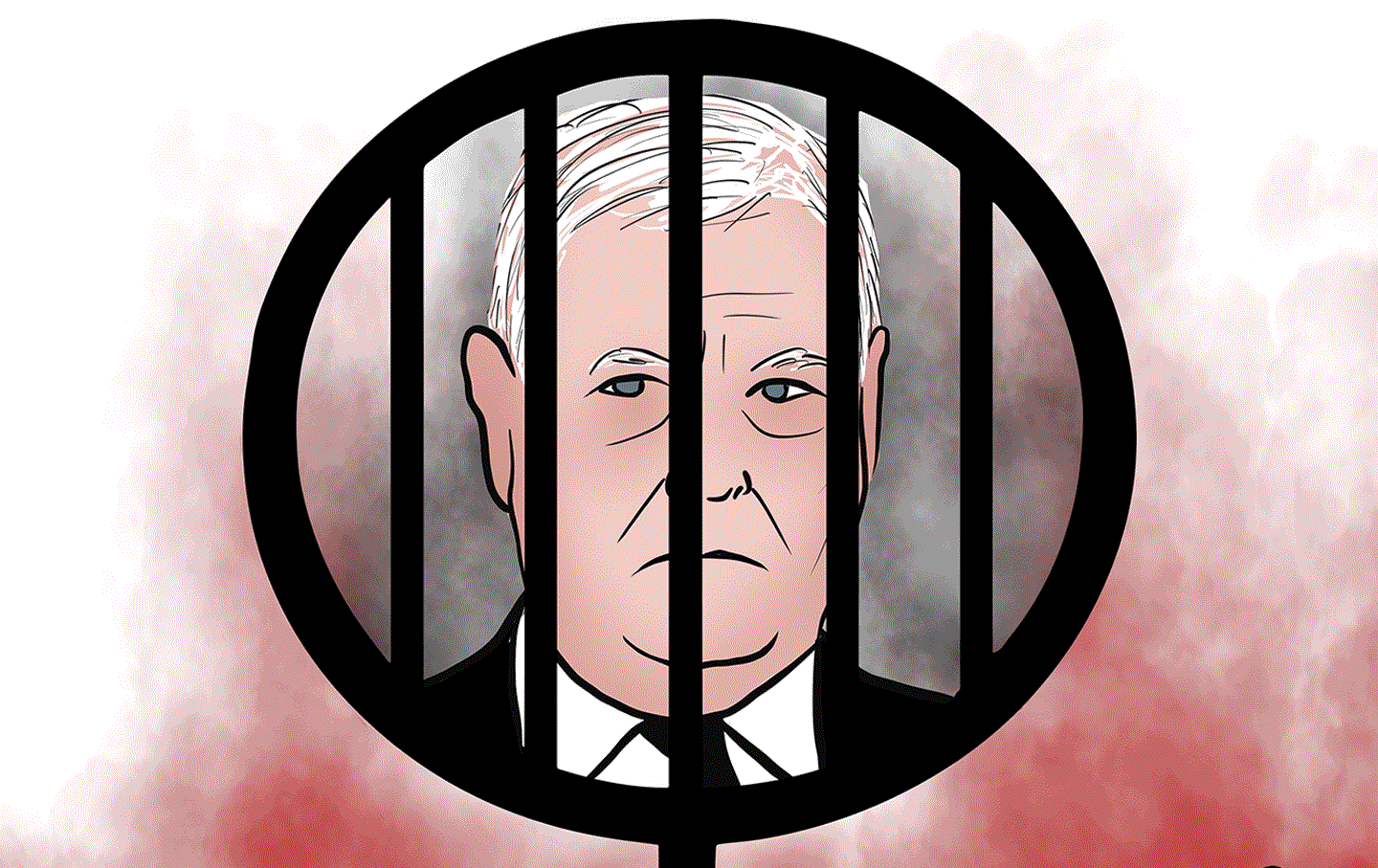
Will There Be Justice for Survivors? Will There Be Justice for Survivors?
The Epstein files have renewed scrutiny of alleged misconduct by powerful figures, including Donald Trump and Prince Andrew, raising ongoing questions about accountability and just...
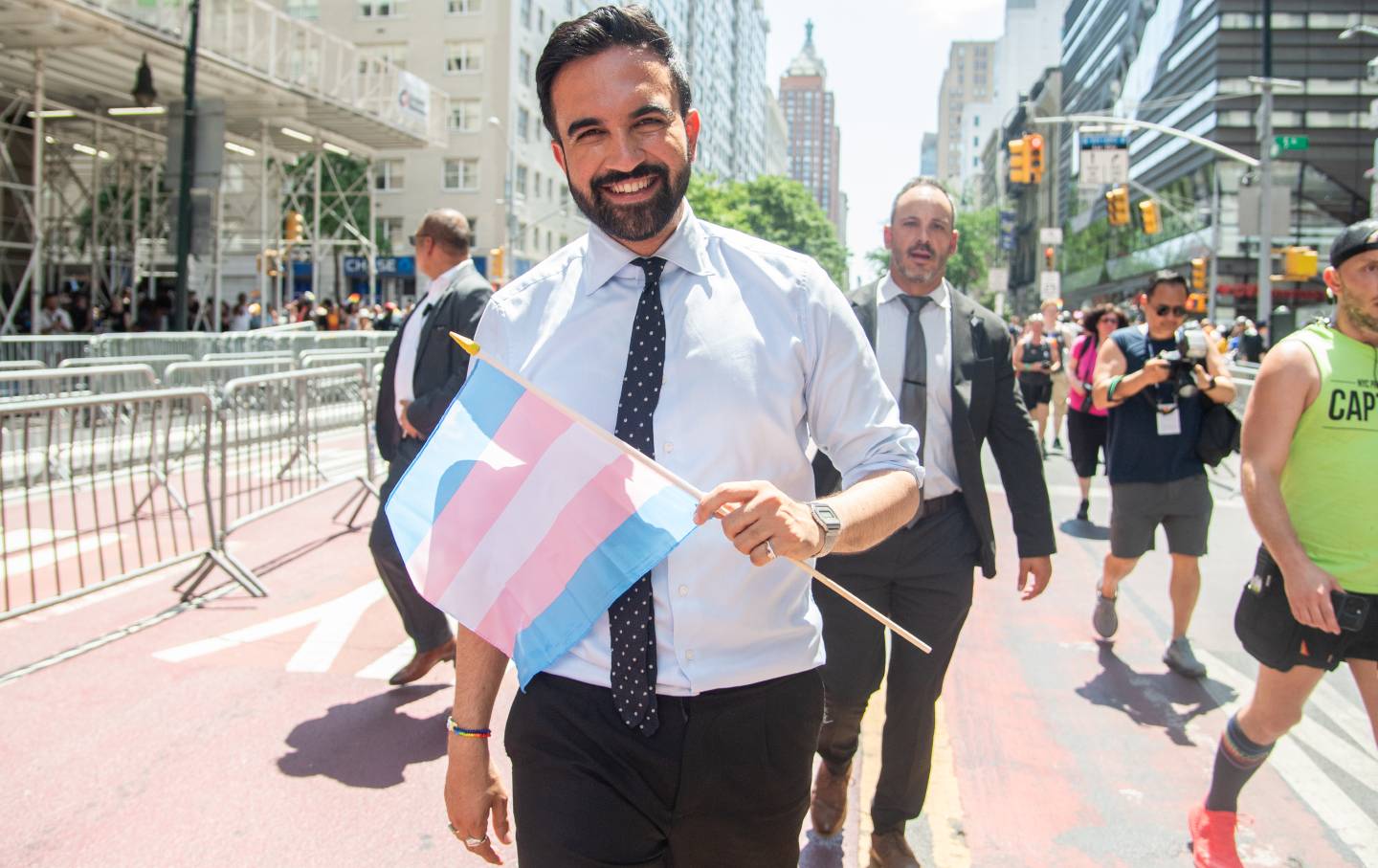
New York City Hospitals Fold to Trump. Will Zohran Mamdani Defend Trans Care? New York City Hospitals Fold to Trump. Will Zohran Mamdani Defend Trans Care?
As a candidate, Zohran Mamdani made promises to New York City’s trans community. With two hospital systems ending trans youth care, he’s now facing his first test.

This Minnesota Winter Is the New Prague Spring This Minnesota Winter Is the New Prague Spring
I’ve studied Czechoslovakia in 1968. I live in Minneapolis. The similarities between the historic invasion and the current ICE “surge” are scary.


